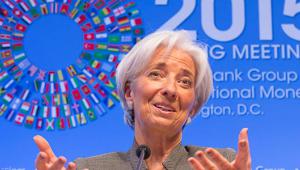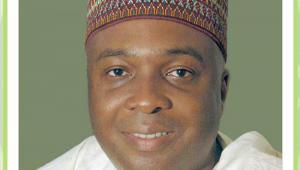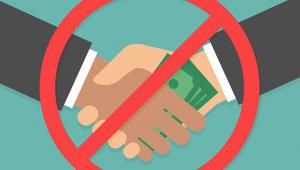Released in January 2019, the Corruption Perceptions Index by Transparency International is an annual research report on the level of corruption in public sectors around the world.
This year’s edition ranks 180 countries and territories, drawing on 13 data sources from 12 independent institutions specialising in governance and business climate analysis.
Denmark and New Zealand score highest on a 0-100 scale of ‘highly corrupt’ to ‘very clean’, followed by Finland, Singapore, Sweden and Switzerland. At the bottom come South Sudan, Syria, and Somalia.
Worryingly, the index shows little improvement on previous years, with more than two-thirds of countries scoring below 50, and an average global score of only 43. Since 2012, only 20 countries have significantly improved their scores.
So what can such an index tell us about effectively reducing corruption?
Cross analysis between global democracy data and the CPI reveals a clear correlation between controlling corruption and the health of a country’s democracy.
If we take The Economist Intelligence Unit’s Democracy Index as a comparison, we see that no 'full democracy' scores below the average of 43 points on the CPI.
Fewer than ten countries classified as Hybrid Regimes (those with both democratic and autocratic elements) or authoritarian regimes score above the average.
Viewed in more detail, we can see that corruption – and the failure of most governments to combat it - has contributed to a weakening of democracy in many countries around the world.
The reasons for this are complex, and context-specific, but our analysis highlights a few key dynamics.
- Corrupt leaders weaken democratic institutions
Corrupt politicians often seek to impose limits on democratic checks and balances, such as an independent judiciary, so that they can stay in power and their crimes go unpunished.
Take the case of Guatemala. There, the United Nations-backed International Commission against Impunity had been working in the country since 2007, successfully gathering evidence and helping bring cases of suspected corruption to the courts. Then last year, the country’s president, Jimmy Morales, a former television comedian, revoked the agreement with the UN that allows CICIG to operate in the country.
It is almost certainly no coincidence that CICIG had been collecting evidence of corruption relating to Morales, his political party, his son and his brothers. It is also no coincidence that Guatemala scores a mere 27 in this edition of the CPI.
- Corruption undermines transitions to democracy
There are 31 countries which transitioned to democracy by the last quarter of the 20th century, but have since seen their democracies stagnate or even slip backwards. All but one of these have high levels of public sector corruption. Because they did not develop effective anti-corruption mechanisms when they first transitioned, they are finding themselves stuck in a cycle of high corruption and low performing democratic institutions.
On the positive side, however, Estonia and Latvia, and Bhutan, the tiny Himalayan kingdom, made anti-corruption a pillar of their transitions towards democracy. Both their democracies and the integrity of their public sectors are making more robust progress as a result.
- Authoritarians and populists can take advantage of corruption scandals
We are seeing a trend of populist leaders who come to power by capitalising on public disgust with corruption. Ironically, these leaders often seek to undermine democratic institutions once they take office – thereby leading to fewer checks on corruption.
In Brazil, although his tenure has only just begun, president Bolsanaro has made it clear that he will rule with a strong hand, threatening much of the country’s democratic development.
An alarming early sign of this was an executive order giving extensive powers to monitor international and non-governmental organisations. His election success relied heavily on public outrage caused by the far-reaching corruption scandal surrounding construction conglomerate Odebrecht and state oil company Petrobras.
Similarly, in the United States, Donald Trump promised to ’drain the swamp’ during his 2016 campaign for the presidency, but has attacked judges, the media, and law enforcement once in the oval office.
He has also stacked his cabinet with individuals with close ties to businesses active in the areas they regulate. The US lost four points in its CPI score this year, and slipped out of the top 20 for the first time since 2011.
So what needs to happen?
Governments everywhere need to strengthen the institutions that provide checks and balances on the misuse of public office, and secure their position to operate independently.
They also have to bridge the gap between laws and their implementation, so that there are strong institutional mechanisms in place that will outlive the whims and pledges of political leaders and parties in power.
Press freedoms are essential. In 2018, the number of journalists killed worldwide in retaliation for their work nearly doubled. We have to make sure that the press can freely and safely report on corruption and hold the powerful to account.
We also need to support public accountability, and create more opportunities for citizens to monitor government spending and have oversight over the use of public funds.
Democracy means more than elections; it relies on an active and engaged citizenry, robust and independent institutions, and strong civil society organisations to provide public oversight.















